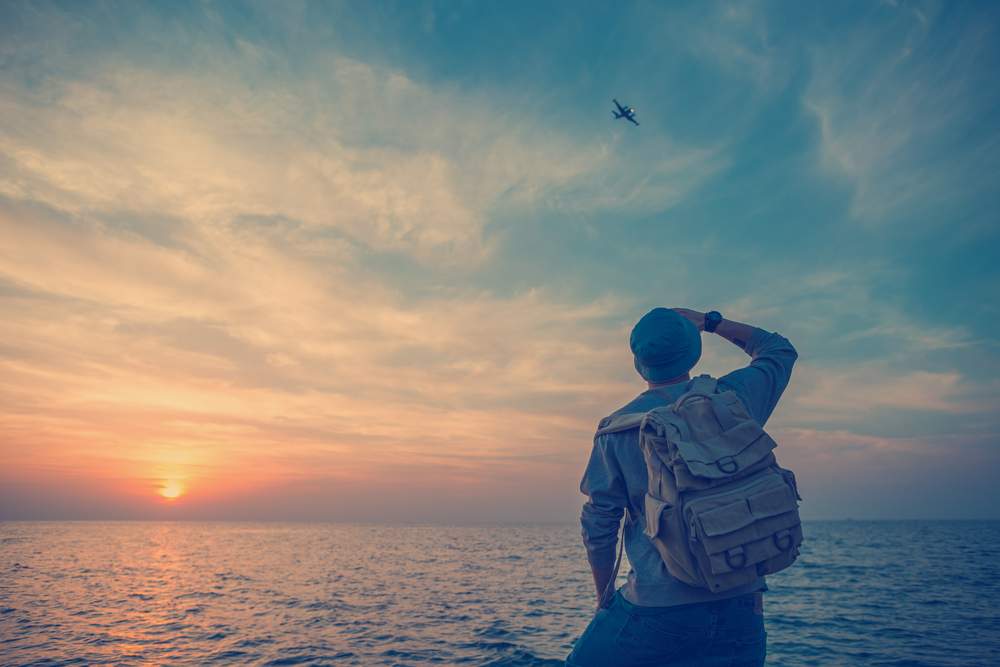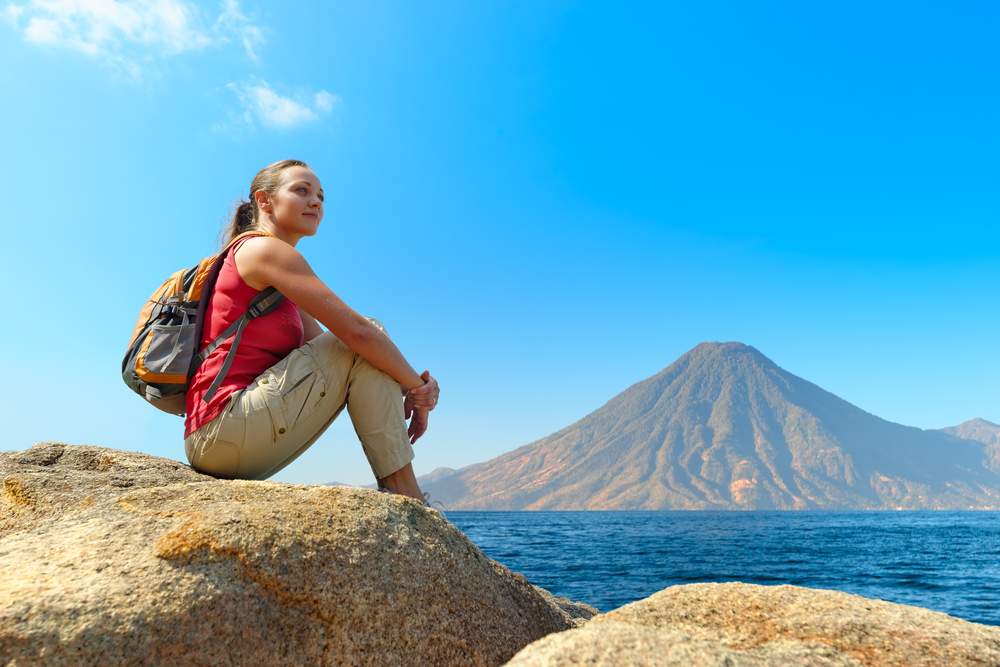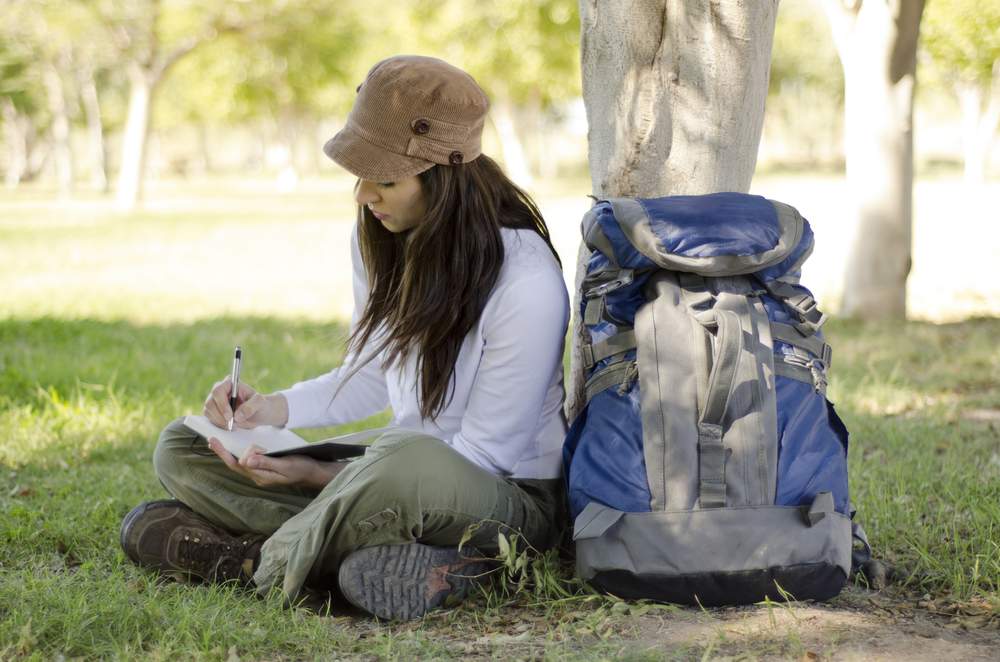It’s a cliché that’s launched innumerable diaries, books, and – more recently – a Julia Roberts movie: bored, unfulfilled or otherwise unhappy person goes on long journey to lands exotic and faraway… and comes back transformed, changed, matured. It’s the wanderluster’s variant of the Joseph Campbell hero-with-a-thousand-faces odyssey. But does it really work as promised or is it all overblown hype?
I, for one, was skeptical: I first encountered the “travel will change your life” crowd back in college, where it seemed practically every other person was snagging a copy of Let’s Go: Europe and heading off to the Continent for three months of partying, museums, and decrepit youth hostels.
” But does it really work as promised or is it all overblown hype?”
Upon return, these folks sagely insisted that, “You’re not having a
real experience until you stay somewhere where you have to take a second shower just to clean off what the first shower sprayed on you.” On the cavalcade of Europe’s treasures they shared equally unrewarding homilies: “I had no idea what I was seeing at [fill in the museum] but I figured one day I’d read about it in a book and say ‘wow, I went there!’”
Check out BootsnAll’s list of Top Travel Books
How was this a pathway to enlightenment?
In recent years another claimant has emerged to the travel as personal-growth throne: Elizabeth Gilbert’s runaway bestseller Eat, Pray, Love, which has spawned a moderately successful (if tepidly received) movie… and legions of fans who yearn to reproduce Gilbert’s personal voyage.
Except, there too I had doubts: Gilbert makes no bones in the book about her overtly spiritual journey, going so far as to recount “a journey to God’s palm.” While no doubt heartening to those religious or spiritual types, what does this leave for the secularists among us? Not much, if the movie – where most of the heavy spirituality was toned down – is any indicator.
But there’s hope – both for those of us who never “got” college-age travel or who have no interest in a latter-day religious awakening. Life changing travel is out there for the rest of us. But how to find it?
Go it alone

Solo travel isn’t for everyone – but I argue that it should be. Sure, traveling with your friends or spouse is oftentimes easier, and I know many folks who’ve had remarkable travel experiences in a group… but alone, with the world unfiltered through the sensibilities or needs of your posse, possesses unique potency. In fact, I maintain that this, more than anything else, is what made author Gilbert’s journey what it was.
“If a world journey encourages the more uncertain or reserved among us to come out of their shell, then that alone is worth the price of airfare, accommodation, and sights.”
I’ve heard from numerous people who’ve said they’re too afraid or introverted to travel by themselves – and I can’t think of a better reason to do it than that. If indeed world travel is to elucidate and enlighten, why not start by having it help us conquer one of our most primal fears – the niggling phobia of being isolated, lonely, ostracized? If a world journey encourages the more uncertain or reserved among us to come out of their shell, then that alone is worth the price of airfare, accommodation, and sights.
There’s also a rich reward for all those “ships passing in the night” experiences that happen on a solo trip: when people are out of their element, in unfamiliar lands, they often (though not always) tend to be more open and forthcoming about themselves. This is the double-edged sword of friendships – and romances – forged on the road: they often make up in intensity what they lack in permanence. This is pay dirt for personal-growth seekers: just as the world offers a rich range of sights and destinations, so too can it offer interactions with depth and dimension so often lacking in workaday life.
Go for longer

This is a tough pill for Americans to swallow, caught up as we are in work, career, and the rat race. When asked to summarize hometowns in one word, actress Roberts (playing Elizabeth Gilbert in Eat, Pray, Love, the film) has this to say about New York City: “ambition.” In a country beset by economic instability, with one-quarter of its citizens granted no paid vacation time at all, and scores of others not availing themselves of the time they do receive, shilling for long-haul, multi-month journeys may seem ludicrous. But such journeys are especially necessary for Americans, if only to break the vicious cycle of the workplace experience: the relative absence of Yankees traveling overseas reinforces the notion that long-haul travels are a waste, not deserving of vacation time and certainly not of a longer, unpaid career break. Instead, we’ve become experts at the “efficiency vacation,” where five days of high-end travel becomes our only window to other lands.
“But such journeys are especially necessary for Americans, if only to break the vicious cycle of the workplace experience”
Except nowadays it’s no longer necessary to choose between the high-end quickie vacations taken by career professionals and the rough backpacker-style travel we associate with student life; in much of the world, comfortable, mid-range accommodations offer another option to immerse oneself in a destination with a bit of comfort: consider a small inn that caters to local business people in India or Southeast Asia. These are only modestly more expensive than backpacker haunts, a fraction the cost of international luxury chains, and filled with locals exploring (or doing business in) their home country.
With the need to cram in and splash out reduced, long-haul trips are much cheaper, on a per-day basis, than short-haul trips. The same is true of multi-destination or round-the-world airfare (or frequent flyer redemption for those of us with a stack of miles saved up): most airlines, airline alliances, and travel consolidators (also known as “bucket shops”) offer economies of scale for buying (and traveling) in bulk.
Write about it

Granted, not everyone’s travel tales will become fodder for a bestselling memoir or Hollywood film… but that doesn’t mean there’s no point to jotting down your experiences. Today’s technology offers near-unlimited possibilities for chronicling travel, from blogs, to social networks, to lightweight, inexpensive gear such as netbooks or iPods. For those unwilling to lug such machinery around, Internet cafés are ubiquitous around the globe.
“The act of recording an event allows the mind to crystallize it, to fix it in time, to better remember it and its impact on your psyche.”
But the real purpose of documenting a journey isn’t for Hollywood, Random House, or even for your family and friends. It’s for you. The act of recording an event allows the mind to crystallize it, to fix it in time, to better remember it and its impact on your psyche. This is the point behind all those shutter-clicking tourists at the Eiffel Tower or the Pyramids of Giza: to amplify and heighten memory. The experience of documenting a journey need not detract from the journey, nor should it “take over” the trip itself; instead, it serves as silent second companion, a sounding board on which to capture memories, feelings, and experiences.
Journey with eyes open

This may sound like yet another banal platitude, but it’s not. A clever (fictional) example of this is John Travolta’s character in Pulp Fiction describing “the little differences” on a recent trip to Europe – in his case, ordering a beer and a “Royale with Cheese” at McDonald’s. In cleverly subverting the “dumb gangster” stereotype, writer/director Quentin Tarantino presents an individual who not only notices subtleties but celebrates them.
It’s commonplace today to lament that the world is globalizing, flattening out, losing color and uniqueness amid a sea of blue jeans, fast-food eateries, and Prada shops. But it would be a mistake to discount global diversity even in the face of economic integration and the World Wide Web. Nations and cultures retain customs and practices, and more often than not integrate their own ways into the mix. Just as Chinese or Italian food back home is often “Americanized,” so too are Western eateries and shops infused with local culture abroad.
“But it would be a mistake to discount global diversity even in the face of economic integration and the World Wide Web.”
This offers a unique experience for the global traveler: instead of sticking to familiar practices and establishments, or “going native” and immersing oneself solely in foreign ways, our increasingly integrated world offers opportunities to mix it up: In Bangkok, Thai street food rubs shoulders with Au Bon Pain. In Berlin, vestiges of the Communist past blend with post-unification-era glass skyscrapers. In China over Lunar New Year, the country’s celebratory television show – call it a local version of Dick Clark – has a lot to say about the burgeoning country’s image of itself.
On their own, each of these practices may not add up to much; they may seem like unlikely paths to personal growth compared with college-age party summers or months of intense meditation in an Indian ashram. But that’s looking at it backward: both the youths of my past and Elizabeth Gilbert in the present are using their blockbuster life-changing events to shorthand the many facets of their travel experience. In reality it’s all these elements, taken together, that help us learn and grow in our time away.
Read more about life changing journeys:





